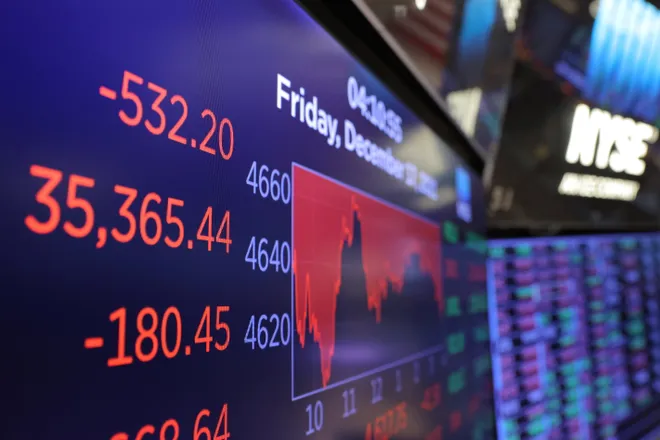
U.S. stocks were little moved by news President Joe Biden dropped his reelection bid and endorsed his vice president, Kamala Harris, to take his spot.
Although Harris as the Democratic nominee isn’t guaranteed, endorsements and campaign cash almost immediately began to pile up, making the nomination “hers to lose,” said Brian Gardner, Stifel chief Washington policy strategist. “Despite calls by some Democrats for an ‘open process,’ we believe that she could effectively secure the nomination within the next 48 hours” and the only question would be whom she’ll choose as her running mate.
No matter what though, analysts still think Republican presidential nominee Donald Trump will win in November and nothing much has changed for U.S. stocks yet.
Harris as the top pick to replace Biden as the Democratic nominee may have tightened the race, but “with Mr. Trump continuing as the frontrunner, we think the ‘Trump trade’ will remain in place,” Gardner said.
The S&P 500 was up 0.62% to 5,539.23 points at 12:12 p.m. ET. The Dow was up 0.032% to 40,300.27 and tech-heavy Nasdaq rose 0.96% to 17,897.98.
What is the Trump trade?
The Trump trade is basically buying stocks investors think will benefit from Trump’s policies.
For example, Trump has said he wants to allow oil companies to drill more, and that’s helped energy stocks. The Energy Select Sector SPDR Fund is up about 8.5% since the beginning of the year.
The recent rotation out of large cap stocks that have powered the stock market this year is also part of the Trump trade as Trump threatens to raise tariffs on China and Europe, analysts said.
“Small caps should do well as a hedge on a potential tariff war that could negatively impact larger firms with international exposure,” Gardner said.
What about a Harris trade?
So far, there isn’t a Harris trade. Not only does she have to seal the nomination, but she would have to show she can actually beat Trump.
She’s also still tied to President Biden’s economic record and hasn’t spoken enough on economic policy for economists to build a forecast, market watchers say.
“We don’t think there’s a lot of mileage to be had in trawling through her policy positions during the 2020 primary (when she initially ran for president), particularly as she focused more on social issues rather than economic initiatives,” said Paul Ashworth, chief North America economist at research firm Capital Economics.
What are stock investors focused on instead?
Without a huge change in presidential election odds, investors remain focused on company news, the economy and interest rates, analysts said.
In company news, cybersecurity firm Crowdstrike continues to tumble after the company’s update on Friday caused a major worldwide IT outage that other businesses like Delta Airlines are still struggling to recover from. Crowdstrike shares dropped to their lowest level since January, down 13.5% to $263.70 at 12:11 p.m. ET, while Delta shed 2.05% to $44.51.
As for the economy and interest rates, most economists believe recent signs of a cooling jobs market and lower inflation will lead the Federal Reserve to cut rates in September. It would be the first rate cut since the Fed slashed rates to near zero at the start of the pandemic in 2020.
A report on the Fed’s preferred measure of inflation is due on Friday, and economists expect it to confirm that inflation continued to ease in June, giving the Fed room to trim the highest interest rates in two decades.
“With rents returning to pre-pandemic rates, the balance of the June inflation data are likely to qualify as a ‘really good’ reading, to use Chair Powell’s taxonomy,” wrote Deutsch Bank economists in a note. “We cannot understate the importance of the downshift in rental inflation in June.”
























